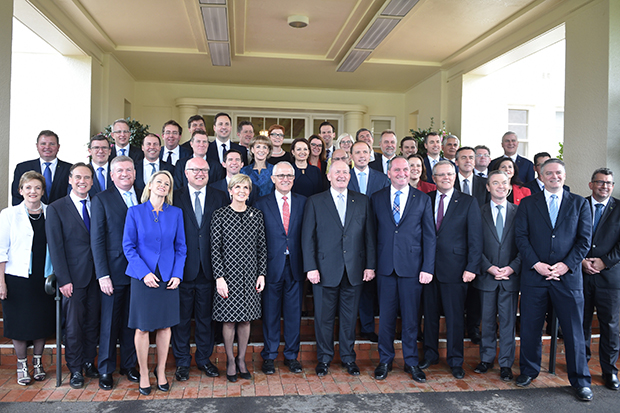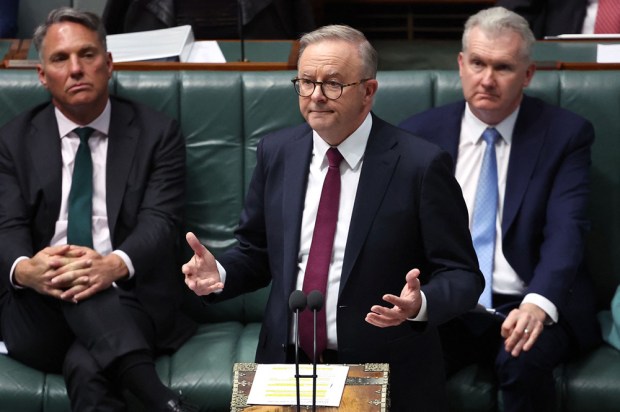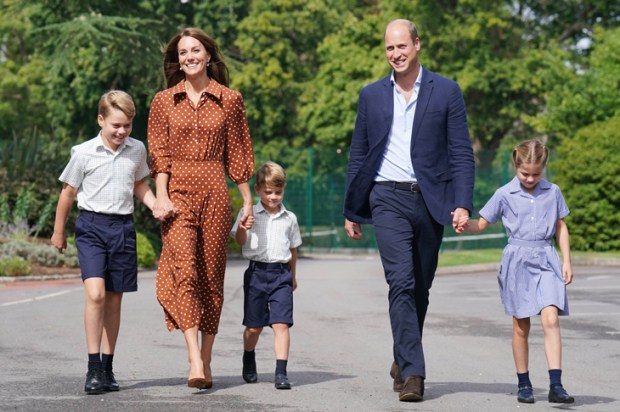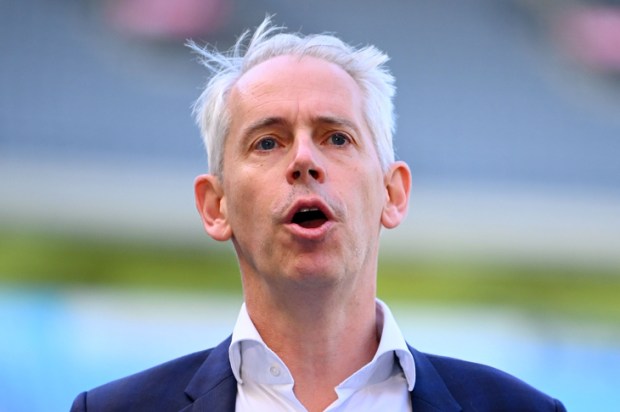The new cabinet confirmed at its very first meeting that it is not ‘fit for purpose’. With 23 ministers, it is the largest since Whitlam’s. But he had 27 ministers, Turnbull has 42.
Whitlam flouted Menzies’ wise counsel that only the leading dozen or so ministers should sit in cabinet, but Turnbull has chosen the worst of all worlds.
Even this has been exacerbated by ignoring the principle that the fundamental criterion for being in cabinet is merit. Only petty vindictiveness can explain Tony Abbott’s exclusion. Not only does the nation lose, but so does the West.
Abbott has strengths unusual among modern Western leaders. He understands, as few politicians do, that the primary function of government is still protective − defence, national security, law and order and the protection of the borders. He was unusually firm and effective in such matters as turning the boats back or unhesitatingly warning about and standing up to Islamist terrorism.
Most Australian politicians perform poorly at this, just as they do in the second function –– providing infrastructure that private enterprise cannot. Just think of dam building. As with most Western politicians, they excel at that big post-war government function, the one which is ruining the West, redistribution. This involves spending other peoples’ money, and when that runs out, borrowing vast amounts for the next generation to worry about. The immediate result is that instead of building schools, dams and hospitals, the Turnbull government is throwing more than a billion dollars down the drain each month on interest payments. Instead of seriously tackling waste, they are going after self- funded retirees. While this wins them the plaudits of union bosses with their competing industrial superannuation funds, it alienates the heartland. If pushed, this will be Turnbull’s second Achilles heel, just as forcing Kevin Rudd’s ETS on the Coalition was his first.
The cabinet spent much of its first meeting on considering whether to nominate Rudd for the position of UN Secretary-General. According to Rudd, Turnbull agreed even before the coup to support him, contrary to the Abbott government’s decision. Rudd says Turnbull subsequently confirmed this in meetings, saying he and Julie Bishop were ‘as one’ in supporting him. Before cabinet met, ministers debated the issue in the media, demonstrating a breakdown of discipline usually only seen when a government is disintegrating. Ministers spoke outside of their portfolios, encouraged no doubt by Turnbull’s precedent when he was a minister in the Abbott government.
There was a widespread suspicion among the public that this was just the politicians’ club protecting their own, ensuring not only gold or platinum-plated superannuation and unimpeded access to the notorious revolving door into business, but also ‘jobs for the boys’.
In any event, the Cabinet was unable to come to a decision, leaving it to the PM. A press conference for the following day was delayed for over two hours. Reported around the world, Rudd’s rejection was a mess of Godwin Grech proportions; all of Turnbull’s own making.
Notwithstanding the Cabinet’s indecision on Rudd, it approved a Royal Commission into the Northern Territory juvenile criminal justice system. Once again, the ABC broadcast a highly polemical and extremely unbalanced programme and a government panicked, doing their bidding. In the same week the ABC disgraced its charter in yet another instalment of the campaign to trash the reputation of Cardinal George Pell. This concerned a never-ending Victorian police investigation which has not even resulted in the Cardinal being questioned. The programme showed interviews with two alleged victims and one alleged witness, all of whom complained after decades of silence. Although he led the churches and other institutions in his reforming response to child abuse, the Cardinal is a target for destruction for the sole reason that he is too conservative. Within the ABC, there is an agenda to undermine existing institutions with the purpose of moving the country even further to the left. A corollary is to destroy those who stand in its way. In 2006 I was asked by the Australian to review a book about Alan Jones, Jonestown. My conclusion was that this was an unwarranted intrusion into Jones’ private life based on purloined correspondence, amateur psychoanalysis and irresponsible journalism. The extraordinary thing was this obviously hostile book had been commissioned by the national broadcaster. When the board was caught out, they handed it over to a private publisher. Had they insisted on recouping the more than $100,000 taxpayers’ funds they had spent, the book might not have been published.
But back to the Northern Territory. With the resignation of one commissioner and Mick Gooda impossibly conflicted, the royal commission should be abandoned. Royal commissions should only be called after careful consideration as to whether they will provide any useful answers. There will be a demand, even an insistence, that this royal commission recommend that the pendulum in the criminal justice system be moved further away from protecting the general public and victims of crime. That is not acceptable, as indigenous women have pointed out.
The fundamental, underlying issue is why so many indigenous Australians, including the young, are in detention for serious offences. With government expenditure per indigenous person being twice as high as that spent on other Australians, it can have nothing to do with the totality of funding. Nor the Constitution.
What is wrong is that too many children − and not only indigenous children − are in dysfunctional homes, something which was a rarity before Whitlam. And although there is no evidence of a truly stolen generation, this has created a fear of removing children from extremely unsafe environments. This has been exacerbated by the romantic idea the elites have of turning remote areas into some utopian museum of tribal life. Notwithstanding the billions poured into the achievement of this utopia, according to far too many reports, especially from children and women, this has too often turned into a hell on earth.
This is a problem which has been created by politicians and which did not exist when the country was poorer. The solution doesn’t lie in more welfare, royal commissions or changing the Constitution. The solution lies in returning to all Australian children, including the indigenous and immigrants, the benefits of living in stable, self-supporting families, with an abiding respect for traditional Australian values and institutions.
The post Cabinet is not ‘fit for purpose’ appeared first on The Spectator.
Got something to add? Join the discussion and comment below.
Get 10 issues for just $10
Subscribe to The Spectator Australia today for the next 10 magazine issues, plus full online access, for just $10.
You might disagree with half of it, but you’ll enjoy reading all of it. Try your first month for free, then just $2 a week for the remainder of your first year.














Comments
Don't miss out
Join the conversation with other Spectator Australia readers. Subscribe to leave a comment.
SUBSCRIBEAlready a subscriber? Log in